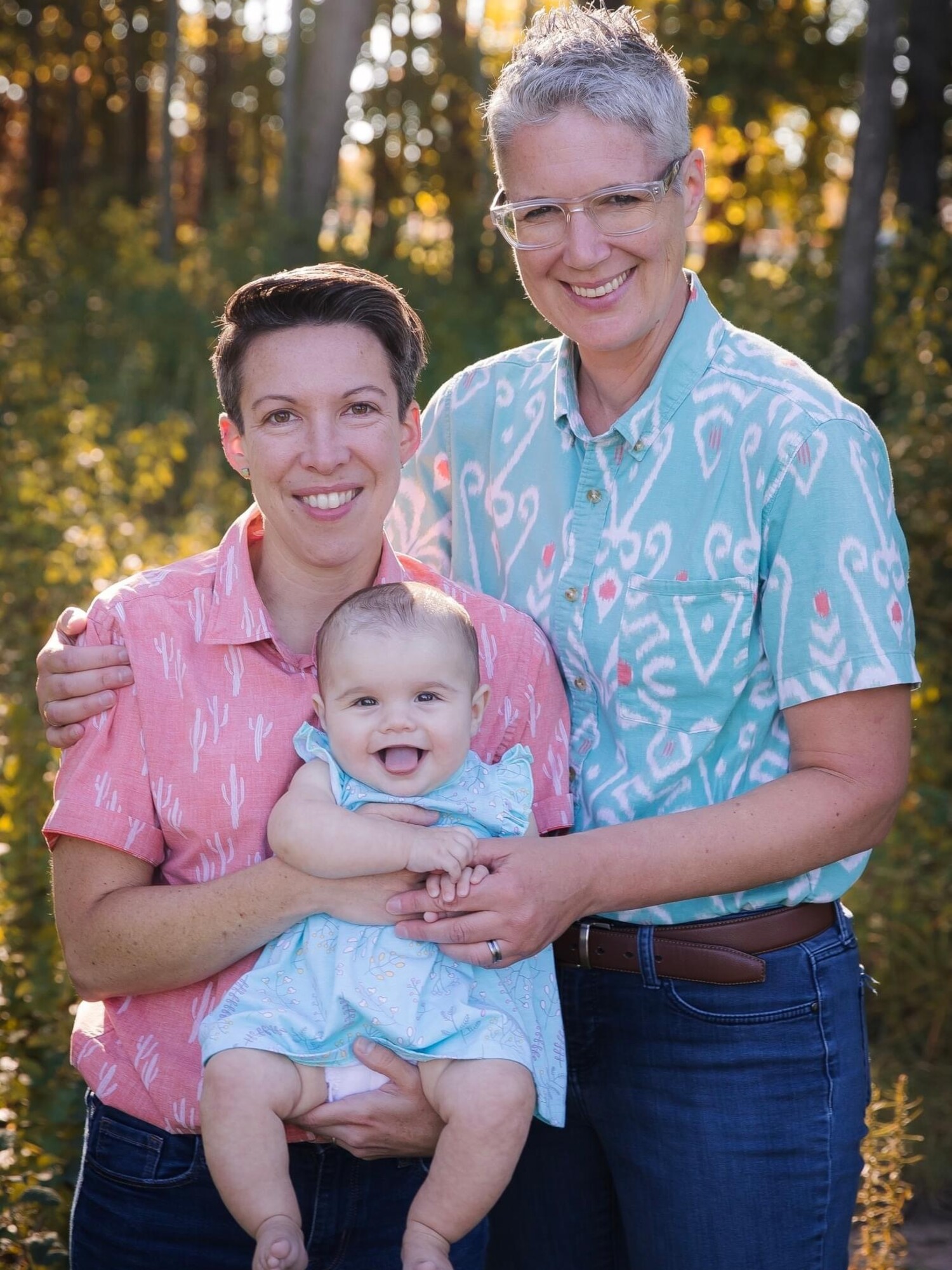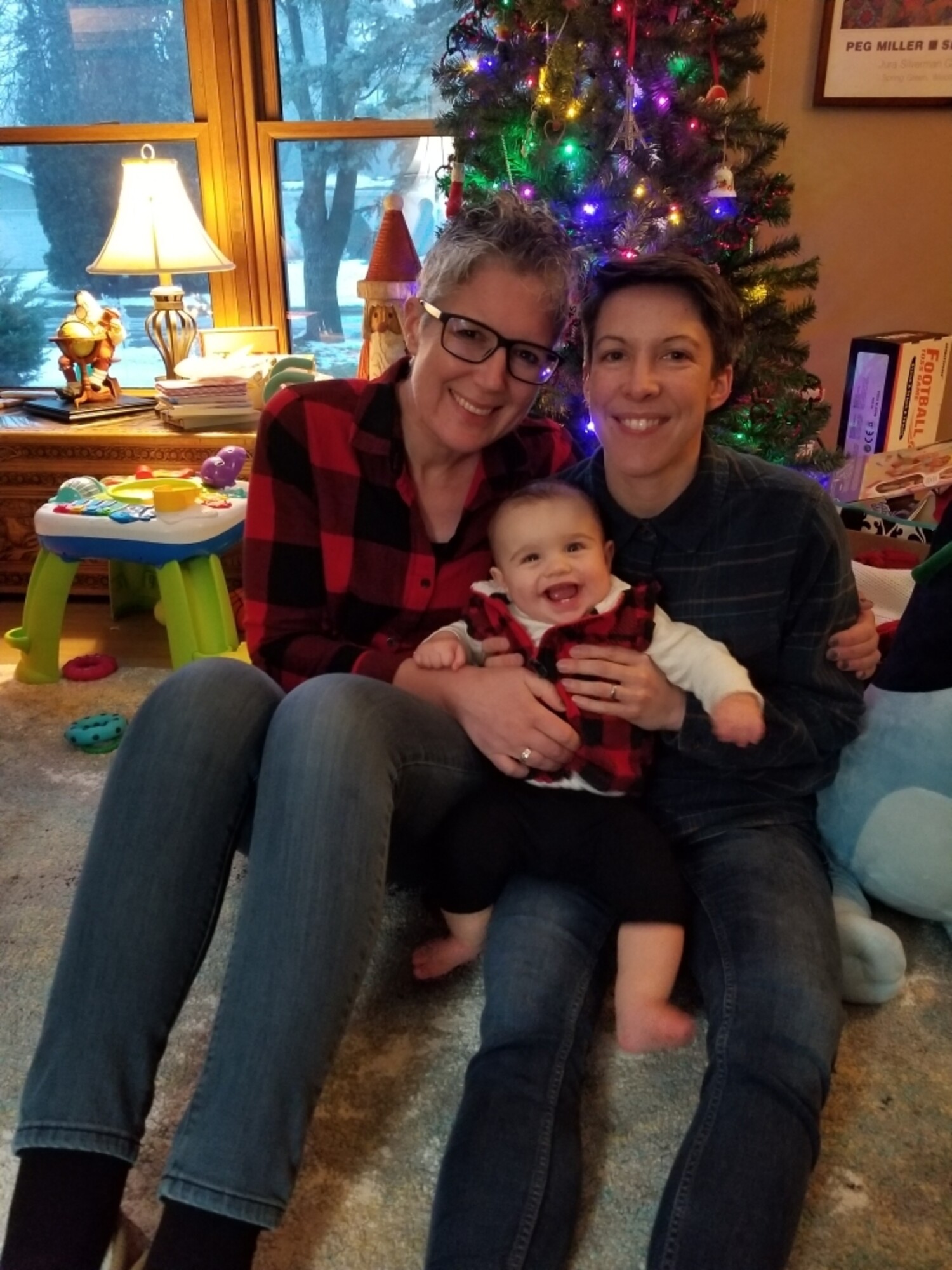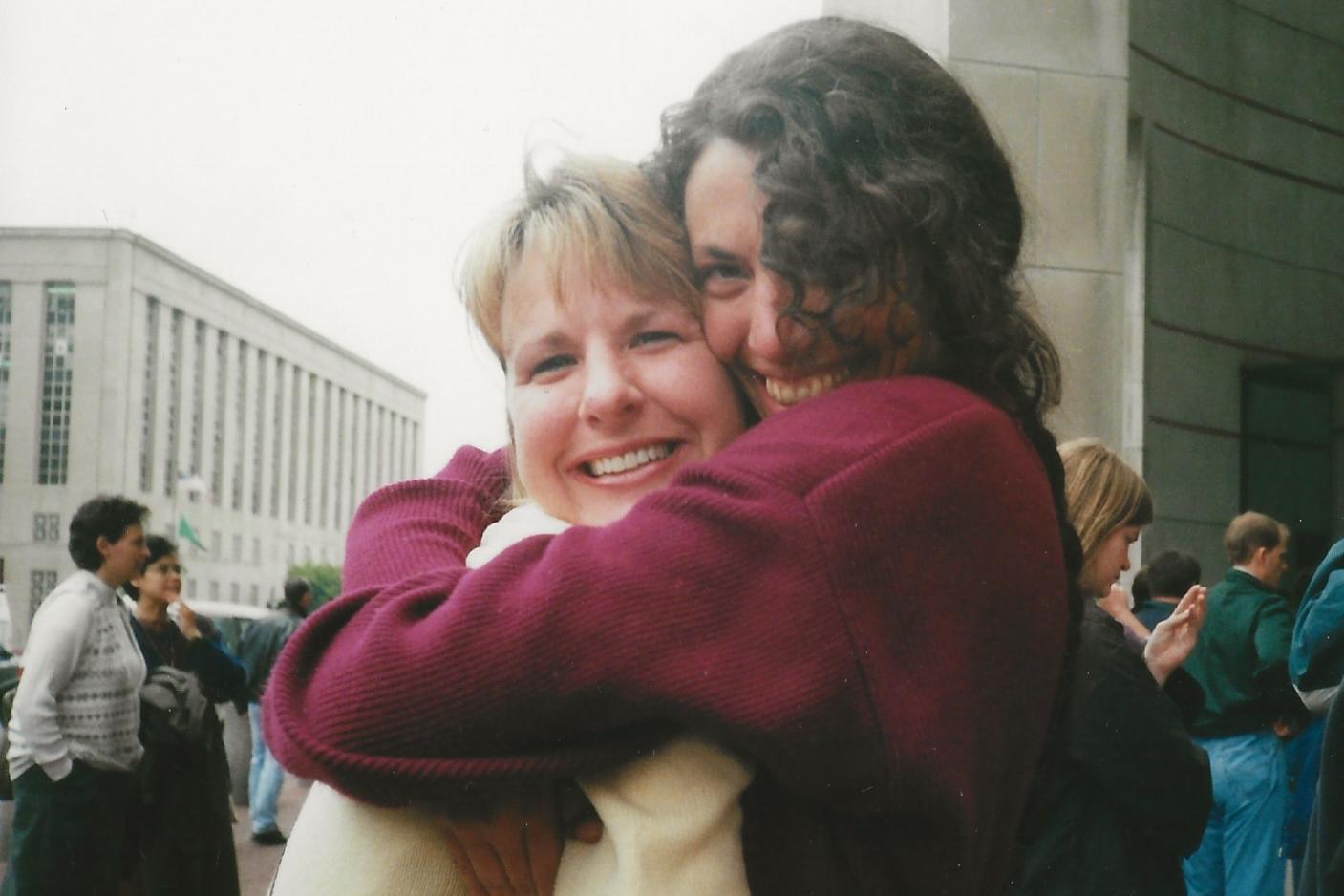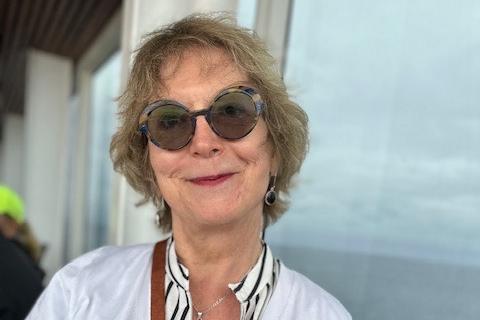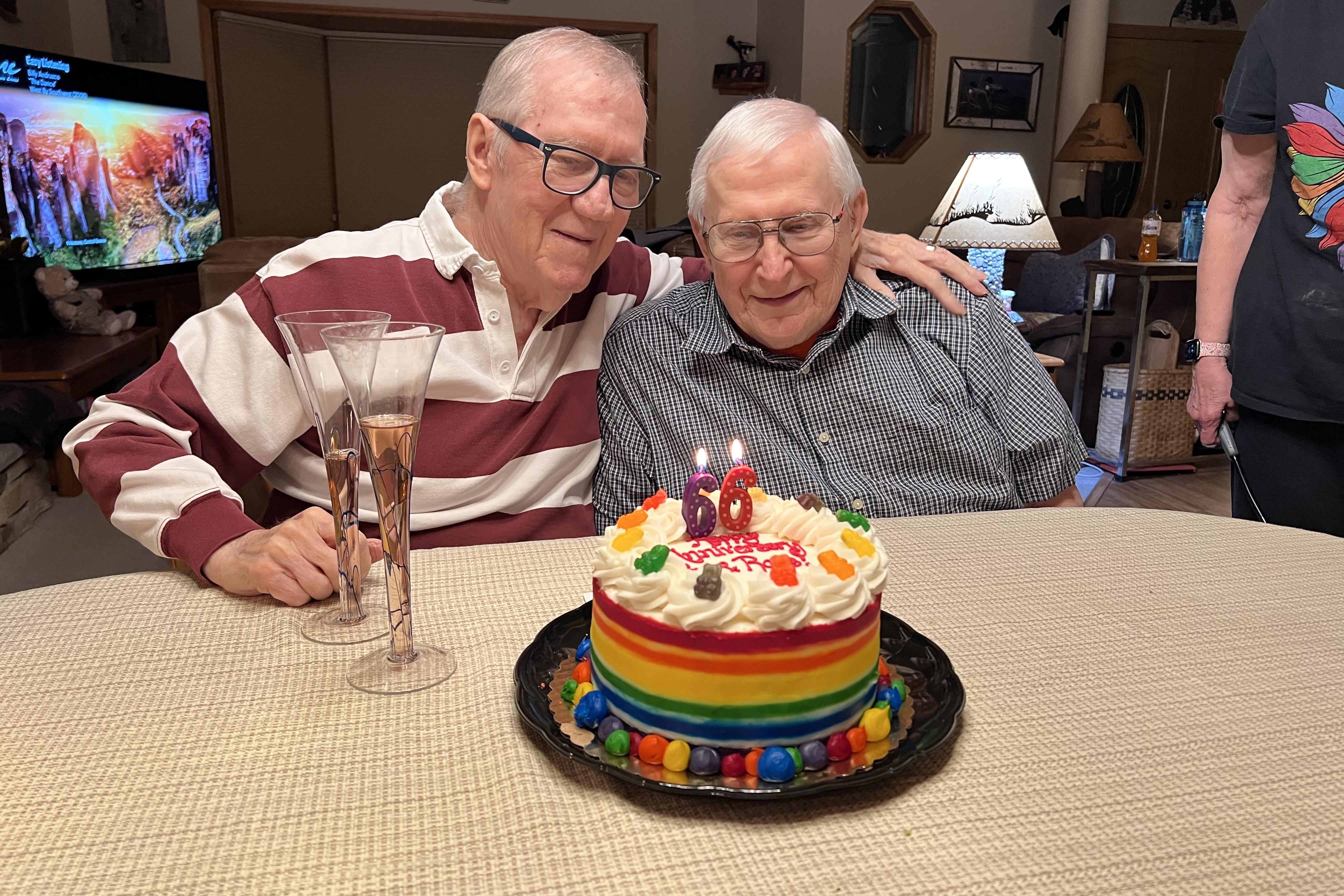A colorful childhood
Abby feels she was incredibly lucky to grow up with many queer people in her life.
“My family attended the Unitarian Universalist Church, a denomination that is actively welcoming to our LGBTQ community (and has been for a very long time,”) said Abby.
“In Kansas City, we went to All Souls UU, where the founders of SAVE Home, a hospice care home that served gay men living with HIV/AIDS also attended our church. Many of the residents came to our church, and some sang in the choir with our mom.”
“My first protest was actually a counterprotest of Westboro Baptist, a hate group that was protesting my church, and I remember helping to hold up a bedsheet with a letter written on it, calling for increasing HIV/AIDS funding for care, research and prevention, and for the end of discrimination against the LGBTQ community.”
“I distinctly remember when a family friend, who was a member of ACT UP Kansas City, showed up at the counterprotest with his bagpipe brigade and started playing music, effectively drowning out the hate group outside my church.”
“We also had dear family friends who were a lesbian couple with adopted children, and I remember listening intently to their stories about traveling to other countries to meet and adopt their children, just as my mother had done for my sister,” said Abby.
“Today, my wife and I have become adoptive parents in our own right, and I love telling our story of traveling to Kansas for the birth of our child, and the journey to bring her home.”
Creating a connective world
Abby came out in Tulsa, Oklahoma during a very challenging time.
“I was a patient in the eating disorder ward of a psychiatric hospital,” said Abby. “I am so thankful for that time and for the life that I currently life. I have now been in recovery for almost 19 years.”
“One of the reasons I am living as a healthy person is that I realized my queer identity as I became healthy. Having been sick with my eating disorder for 10 years, I’d become so disconnected from my own wants and needs, and even my own body, that I did not understand my own identity. It took five months of soul-searching to realize who I was.”
“When I started healing, I had enough energy and emotional capacity to spend time learning about myself, not to mention being able to connect with my own hopes, dreams, and even desires. However, the environment I came out in was a fraught one, mostly due to the homophobia I faced from some (not all) staff members.”
“That was one of the reasons I chose to move to Madison after I discharged from the hospital. I was looking for a welcoming place to live, and when I came to visit a friend, I saw “A Fair Wisconsin Votes No” signs (against the marriage equality ban) in yards and queer families at the park.”
“I saw a future for myself as a queer person here.”
Today, Abby is conquering her fourth career. She is the executive director of Fair Wisconsin, Wisconsin’s only statewide LGBTQ civil rights and political advocacy organization. Previously, she worked in state government, and earlier, as a middle school teacher and actor/director in a professional theater.
Abby strives to create belonging within her personal and professional worlds.
“When I was a teacher, I was determined to make my classroom a safe space. In some ways, it was almost selfish - I wanted to be safe there, too - and I’m so thankful for the community we built together in that 8th grade classroom.
She and her wife have a one-year-old child.
“We are absurdly thankful for her,” said Abby. “She is an absolute joy, and she makes our lives so much richer. We are so lucky that her birth mom wanted to consider lesbian couples when she was choosing her family, and we are still in regular contact with her today.”
“Being honored for Lesbian Visibility Week has brought with it a lot of meaningful reflection,” said Abby. “Lesbian is not a word that I use for myself, I use ‘queer.’ And yet, when it comes to my identity being made visible, I know that ‘lesbian’ is the word others might most readily see in me.”
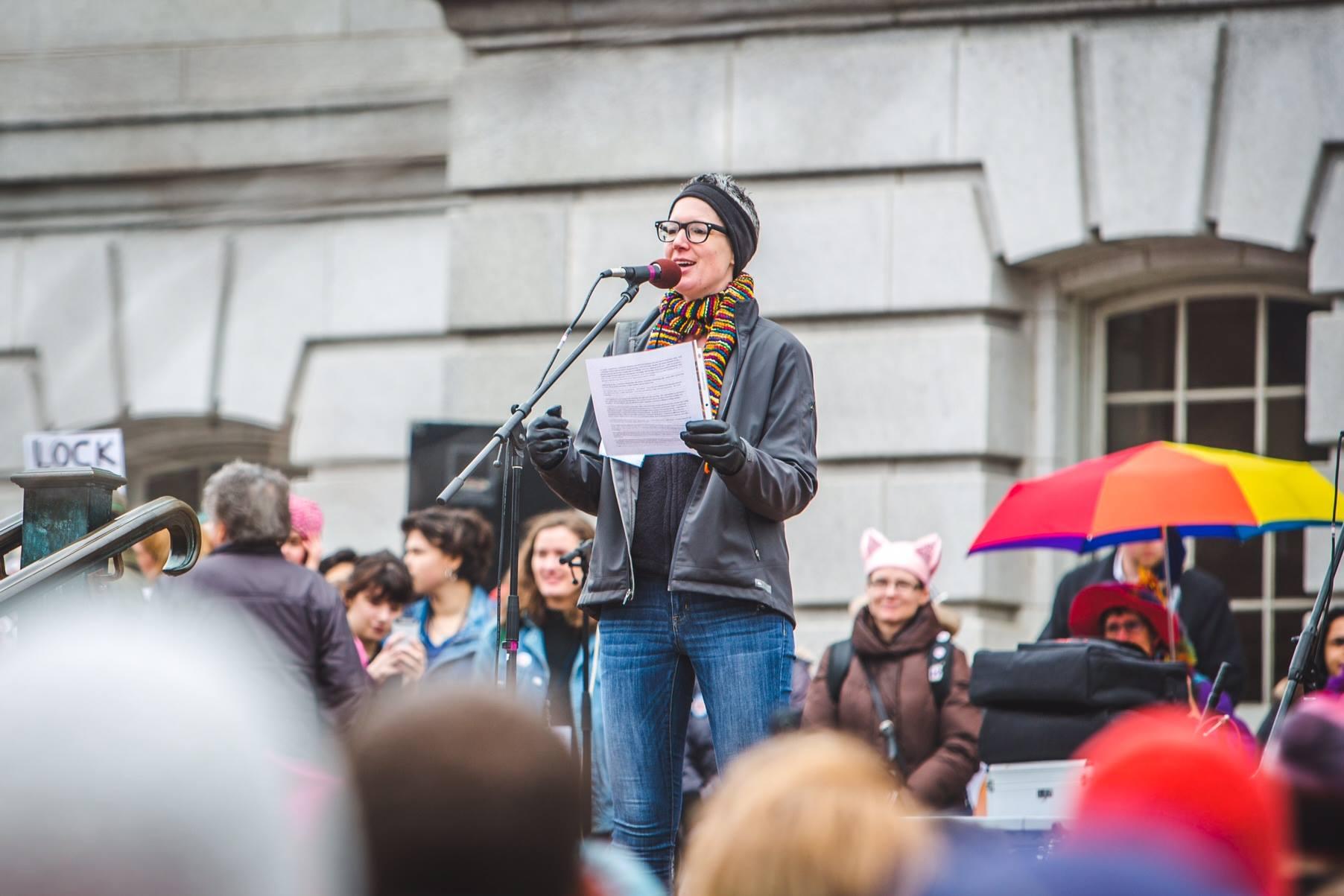

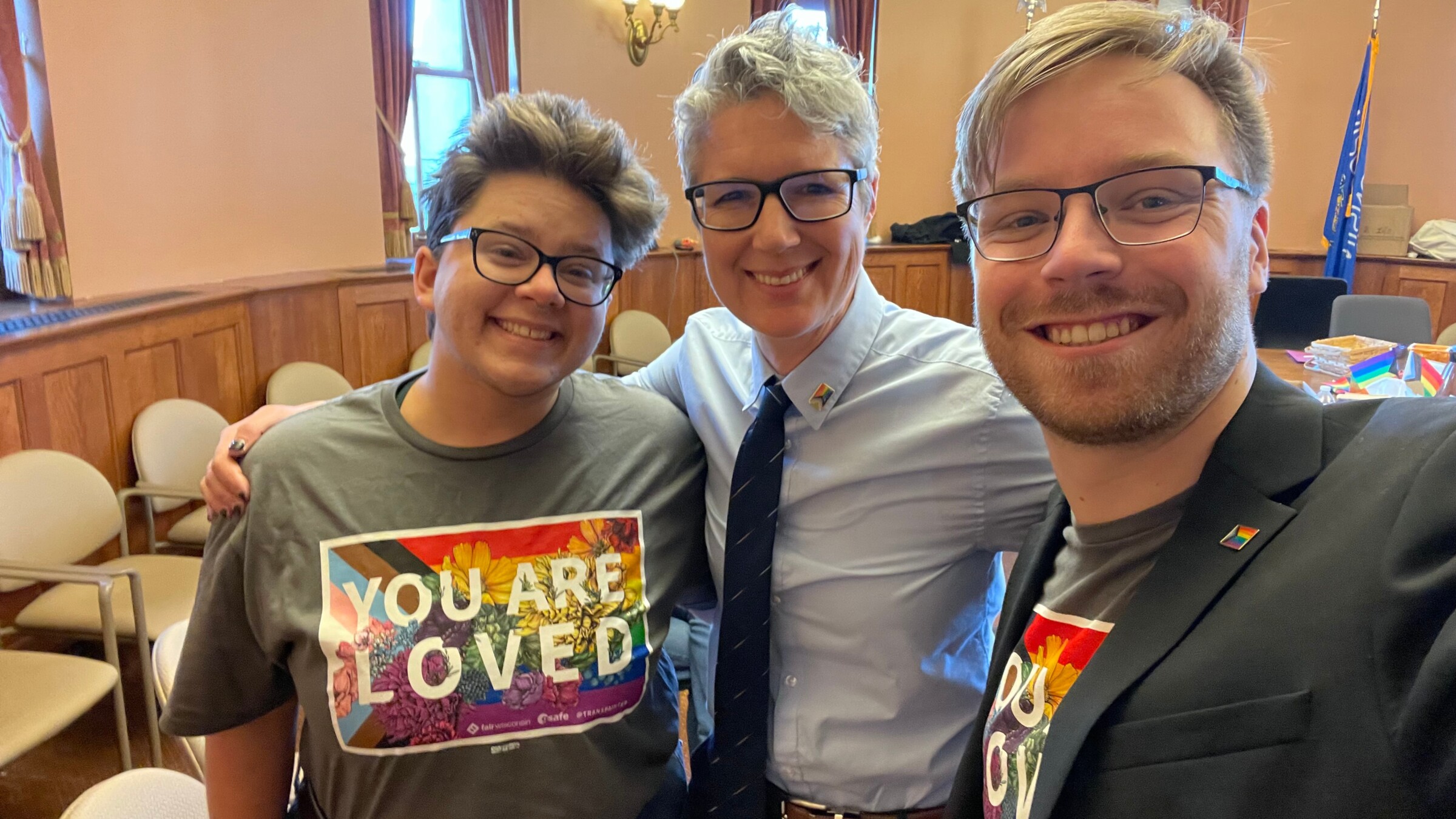 The Fair Wisconsin team
The Fair Wisconsin team
